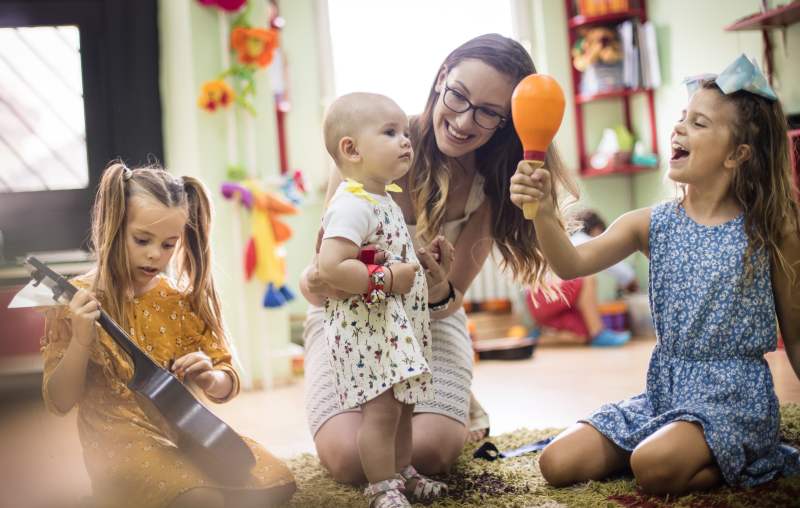
By Kara Arundel | K-12 DIVE
Just over half of Education Next survey respondents give their local schools an A or B, compared to 60% in 2019.
Public opinion of the quality of local schools has dropped but support for universal pre-K has increased significantly, according to annual survey results released Tuesday by Education Next, a journal focused on school reform.
The survey touched on a variety of education topics, such as school choice, instruction about race, and teacher salaries, but one of the big takeaways, according to the researchers, is the evidence of partisan differences regarding certain educational issues.
For example, Democrats and Republicans have historically both given their local public schools an A or B grade. This year, however, 55% of Democrats and 46% of Republicans would grade their local schools with an A or B, according to the survey.
While 72% of all survey respondents favor increased teacher salaries when not informed about current expenditures, which is up from 61% in 2017. That number falls to 60% when current salary information is provided. There is also significant partisan split when it comes to positive views of teacher unions: Favorability among Democrats is nearly 40 percentage points higher than among Republicans, according to the survey.

“Despite the education-policy community’s long history of trying to keep political pressures at arm’s length, public opinion on education issues seems to be increasingly drawn into the powerful current of partisanship in contemporary American politics,” said survey report authors David Houston, Paul Peterson and Martin West in a statement.
The 16th annual Education Next survey was conducted in May 2022 with a nationally representative sample of 1,784 American adults. A second subset of the survey included 1,857 parents of children in K-12 public, charter and private schools.
Other findings from the survey include:
- School choice. Support for education savings accounts that allow parents to use government-provided funds for education expenses, including in some cases for private school tuition, has increased by 10 percentage points since 2017. A majority of survey respondents (61%) also said they support tax-credit scholarship for low-income students.
- Instruction on race. Just under 40% of respondents said their local public school is placing the right amount of emphasis on slavery, racism and other hardships faced by people of color in the U.S. More respondents (35%) said there was too little emphasis on teaching about race compared to 27% who thought there was too much emphasis on these topics.
- Universal pre-K. Support for government-funded universal pre-K (71%) and pre-K for low-income families (72%) has increased since 2014, when 54% favored universal pre-K and 62% favored pre-K for low-income families.
- Social-emotional learning. After seeing increased support for SEL during the pandemic in relation to academic learning, public opinion is returning to pre-pandemic levels. In 2019, respondents had a 66% to 34% split in favor of academic performance. In 2021, Americans were divided almost evenly down the middle, with 52% preferring academic performance and 48% favoring social and emotional well-being. In 2022, 65% of survey respondents said schools should focus on academic performance versus SEL.

Read this and more at K-12DIVE

